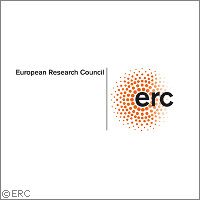Administrative and organisational changes to secure the ERC's sustainable development
The European Commission has presented its strategy to ensure the long-term success of the European Research Council (ERC). In its communication to the Council of the European Union and the European Parliament entitled 'The European Research Council - meeting the challenge of world class excellence', the Commission sets out a twofold approach focused on streamlining the ERC's organisation and improving its efficiency. The ERC has now been in operation for two and a half years. 'The ERC offers a new model for implementing Community research and technological development policy,' the communication reads. 'First experience has shown certain obstacles [...] which is only natural when new structures are being created. Some of the problems which have come to the surface have been solved - or are being addressed - pragmatically within the current legal framework, but others may necessitate deeper changes.' More specifically, as an initial, short-term measure, the Commission will recruit a director for the ERC Executive Agency (ERCEA) who is both a distinguished scientist and an experienced manager and administrator. Following the creation of this new post, the Commission anticipates further modifications in the governance of the ERC, such as an adjustment of the composition of the ERCEA steering committee. In the medium term, the Commission intends to discuss the rules and regulations for research and innovation funding instruments such as the ERC with the European Parliament and the Council of the European Union. The Commission adds that the upcoming triennial review of the Financial Regulation will offer the ideal opportunity to consider issues of financial operations. 'As regards research policies, the central element will be to determine the precise nature and scope of specific adjustments to be made to the benefit of research, technological development and innovations, and specifically frontier research, so that high levels of creativity can be supported without inducing undue financial risk,' the communication states. 'The appropriate balance between risks, which are inevitable in the conduct of cutting-edge research, and the protection of the financial interests of the Community through the Financial Regulation indeed has to be found.' European Science and Research Commissioner Janez Potocnik commented: 'Two and a half years after its start, the ERC is regarded widely as a success and an influential component of the European Research Area. We are now announcing steps to help the ERC shift from its pioneering to its mature phase. Our actions and those under the responsibility of the Scientific Council will further improve the ERC's performance and guarantee its long-term stability.' 'But our ambition goes further,' Commissioner Potocnik went on to say. 'The building of the ERC has been an instructive experience. It will allow us to feed the debate on the Community's rules for supporting research and innovation, so that Europe can make the most out of these new sources of growth. The ERC is only one expression of the EU's ambition for a Europe of knowledge and excellence.' The new strategy has been developed in response to an independent review of the ERC's activities, originally published in July 2009. The review had praised the council's success during its first two years of operation. At the same time, the panel of experts had raised concerns about the long-term sustainability of the institution unless its structure and rules of operation were modified. The ERC was launched in February 2007 under the Seventh Framework Programme's (FP7's) Ideas programme as the first Community research funding programme to operate on the basis of open competition among research teams. From the beginning, its focus has been on fostering scientific excellence, giving support only to the best researchers in pioneering high-risk/high-gain research. The ERC's current budget (2007 to 2013) amounts to EUR 7.5 billion.



